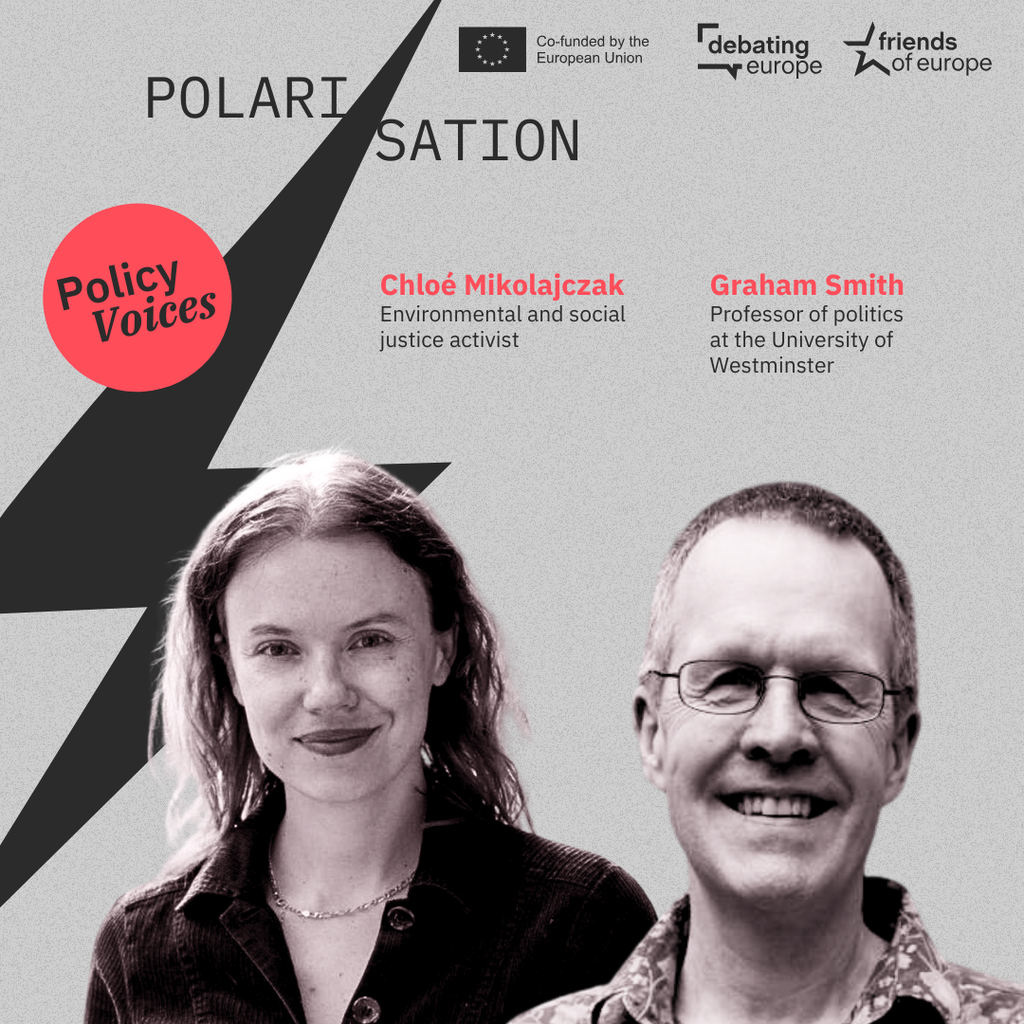Climate and Energy Summit 2025
Next event In person & livestreamed

- Area of Expertise
- Climate, Energy & Natural Resources
Climate, Energy & Natural Resources

Chief Operating Officer and Chief Spokesperson of Friends of Europe
The world has been tested by three major shocks over the past 24 months: the first was the health crisis, followed by an economic crisis. Now, the emerging energy crisis threatens to send further shockwaves throughout economies worldwide, exacerbated by a cold winter ahead. The surge in energy prices is not merely a regional or European situation, but a global phenomenon that is fundamentally linked to climate change.
The interdependency between global economies, both north-south and east-west, is undeniable. If one corner of the world suffers as a result of an energy crisis, the rest of the world will suffer too. A united global response that crosses party lines and cuts through political divisions on energy is imperative.
Renewed commitment to carbon neutrality by 2050 at the forthcoming COP26 summit is not going to cut it. The conference, gathering world leaders in Glasgow to discuss climate action, must bring forward the timescale of the Paris goals – with greater force and passion than we have ever witnessed before – if economies are to recover from this threefold crisis, let alone mitigate the effects of climate change.
In Europe, the economies worst hit by the COVID-19 crisis are also those that do not have fuel reserves or have less access to supply, meaning their economic recovery will be even further hampered by the energy crunch. Europe needs a concerted, state-driven interventionist approach, led by the European Commission and the European Council. The timing is now to change the narrative on climate, invest heavily in cushioning the shock of the fuel crisis on citizens by using public debt, and finally, ensure that the private sector adopts truly green business models.
We’re living in a brave new world where our economic models are going to have to change
Over the summer, the continent witnessed unprecedented harsh weather conditions, from rainfall and heat to volcanic eruptions and earthquakes. These were not early warning signs of the forthcoming climate crisis. These were the latest alarm bells, signalling the severity of our inaction. And we’ve hit the snooze button too many times.
The European Union must step up at COP26 and signal to its citizens and the global community that we have reached the point of no return. It’s a time of reckoning. Feel-good slogans and nice press conferences won’t suffice anymore. Instead, the EU must immediately adopt a drastic new approach to the climate crisis. Proactive actions by governments and the private sector alike can address the energy crisis, while simultaneously averting future crises.
Immediate government measures must include subsidies, tax cuts and direct support for households. Unfortunately, increased public debt is necessary to cushion the potential impact of the incredibly unique set of circumstances that are giving rise to the highest energy prices we have witnessed in decades. The levers of public expenditure can support economies through their recoveries.
Concerns surrounding prolific spending are ill-founded and do not consider the cost of inaction, which will be double or triple that of immediate spending and investment. The COVID-19 crisis has shown us that traditional supply and demand theories and fiscal levers do not and cannot work in the context of globalisation and digitalisation. We’re living in a brave new world where our economic models are going to have to change.
Moreover, the private sector must be placed under greater scrutiny. Governments at both the European and member state levels must ensure that the private sector has a very clear directive to adopt green business models. Some resistance is inevitable, as the cost of transformation will inevitably affect profit lines, in which case sanctions should be considered for those who do not fall in line quickly.
We look to the upcoming COP26 as a test for European leaders to move beyond verbal commitments
Today’s energy challenges require the same level of speed, innovation and ingenuity as we saw at the onset the COVID-19 crisis. On the European level, recovery and funding plans are ambitious, and significant percentages are attributed to digitalisation and the green transition. We are seeing the largest use of taxpayers’ money through the NextGenerationEU’s Recovery and Resilience Facility, portions of which should be dedicated to renovate and transform energy use.
In this regard, the green and digital transitions must be recognised as one single green digital transition. Digital solutions are central to energy. We have the capacity and the opportunity to invest in renewables and increasingly incorporate them into the Union’s energy mix. Ramping up investment in the research and development of new green technologies can help us avoid similar fuel shortages in the future and reduce our collective carbon footprint at speed. At the member state and European levels, long-term investment in digital and energy infrastructure will therefore be key.
Concerted investment must be matched by strong political leadership. And so, we look to the upcoming COP26 as a test for European leaders to move beyond verbal commitments and adopt rigorous action plans to diversify the Union’s energy mix in order to protect communities from future shocks and reach net-zero carbon emissions ahead of the 2050 target.
The time is now to think differently, better and radically.
You may also like…
Next event In person & livestreamed

Past event In person & livestreamed

Past event In person & livestreamed

Past event In person & Livestreamed





Stay informed
We use cookies and similar technologies to adjust your preferences, analyze traffic and measure the effectiveness of our campaigns. Learn more about our privacy policy.